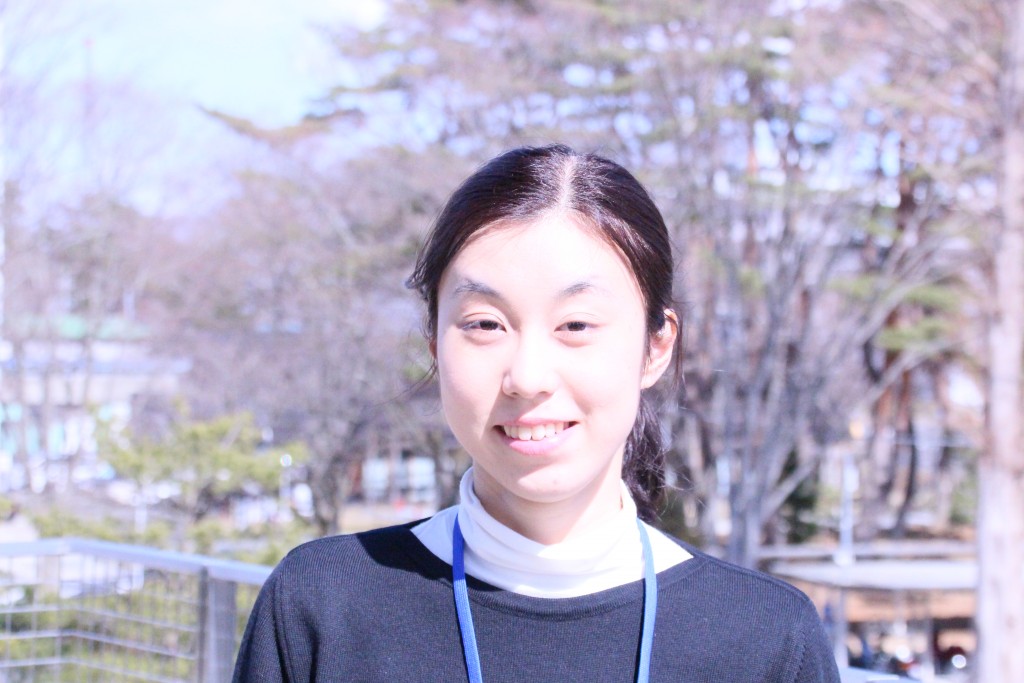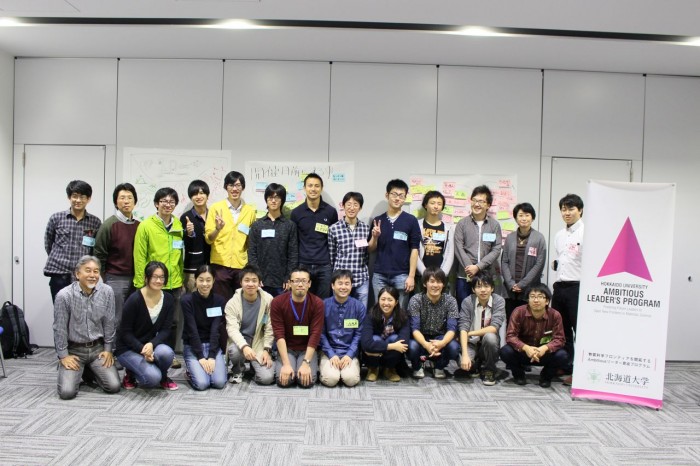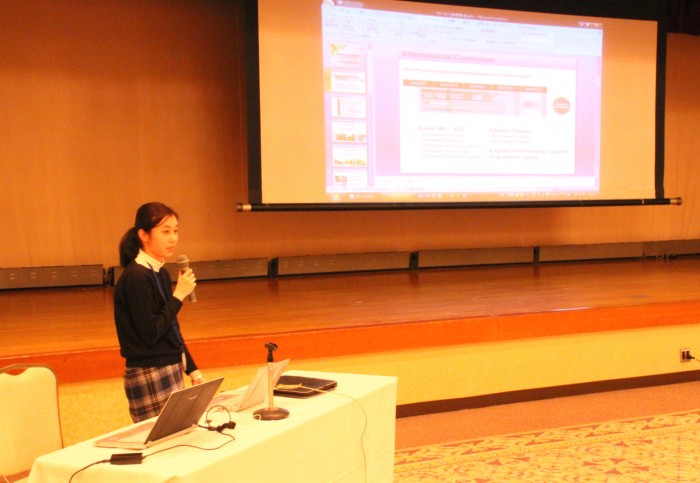
Question: A year and a half after participating in the Leading Program, could you tell us what was most appealing to you about this program?
Answer: The fact that I could get to know other students who also want to obtain a doctoral degree was one of the biggest appeals for me. I was very inspired by talking about research with other program participants. It encouraged me to work harder. So getting to know people with whom you can grow together was very important to me.
Question: Were there several opportunities for program students to meet with each other?
Answer: Certainly. For example, the kickoff meeting of the National Leading Program student conference in October 2014; the QE1 wrap-up party in autumn of the second year of the master’s course or the wrap-up party after the TOEIC test. Whenever we completed a particular task, we would assemble regardless of our grades. I got to meet people who were either in a similar academic field or people who were in a slightly different area but who also studied metals. We gave each other advice on what to do in a variety of situations so I think these gatherings were quite helpful.

After the student conference executive committee kickoff workshop at the 3rd National Leading Program.
Question: Were there opportunities to exchange ideas with participants from Leading Programs of other universities?
Answer: I was able to gain helpful insight into how other universities organized interdisciplinary learning for basic knowledge and application of materials science during a joint symposium with Tohoku University’s Interdepartmental Doctoral Degree Program for Multi-Dimensional Materials Science Leaders. We had also associated with students from Kumamoto University through a symposium in the past, but this particular event allowed even more meaningful interactions.

Ms. Kura making her presentation at the joint symposium of Tohoku University – Hokkaido University Leading Program.
Question: Mathematics-integrated lectures are offered to nurture students’ ability to view research in mathematical science from a comprehensive perspective. What are your thoughts after attending these lectures?
Answer: We took a lecture, Frontier Mathematical Sciences II, offered as a part of the master’s program for mathematics majors in the Graduate School of Science, but I could not understand it at all because it was so difficult. When I did not understand something, I had to ask other program participants or consult with the specially appointed Professor Kuroda. I heard that they are now offering mathematics courses designed specifically for program participants. Therefore, I don’t think second term participants will find any trouble keeping up with the class. In Frontier Mathematical Sciences III, which was organized to encourage active learning, we were able to discuss our own research with mathematics professors and students from other academic fields. We learned through constant communication which part of our study can be easily understood or can be integrated with each other and which part is difficult to comprehend. Through such mathematics lectures, I believe I have gained a deeper understanding from other experts in materials science.
Question: Another major feature of the Leading Program is the provision of financial support for overseas travel and language training. How are you benefiting from this provision?
Answer: I intend to publish my research results on hydrogen-permeable membranes at the International Conference on Solid State Ionics in Colorado, USA, in June of this year with financial aid from support for overseas travel. It’s a poster presentation this time, but I wish to attempt an oral presentation next time. However, before that, I would like to brush up on my English communication skills so I can convey my points more effectively through oral presentations. In this way, I think an important feature of this program is not only the financial support but also a diverse curriculum that allows you to improve on English proficiency. I have been taking a “TOEIC Preparation Course” since April of last year. We get to do actual TOEIC questions and a teacher is there to help out with our queries. Thanks to this course I was able to improve on my TOEIC score. I heard that almost all 11 pilot program participants eventually achieved the goal of 800 points.
Question: Lastly, a message to future program students please.
I dreamed of becoming a scientist after reading a biography of Madame Curie and Professor Katsuko Saruhashi’s research. I want to be a scientist of that caliber. So it would also mean a lot to me if someone out there is now considering “The Ambitious Leader’s Program” as a pathway to his or her aspiration and opportunities for new challenges after reading my interview.

